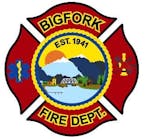And the recruit's family agrees.
"Something ain't right," said Kevin Coleman, whose 41-year-old brother, James Coleman Jr., remained in critical condition Thursday at Methodist North Hospital.
He collapsed after crawling through a dark, confined space during "survival training" Tuesday night at the department's Frayser training campus.
Department officials say Coleman had a health condition that didn't show up on a medical test.
Six other dehydrated recruits went to hospitals that night. Officials say that's not uncommon.
But Larry Anderson, a director with the Fire Department Safety Officers Association in Massachusetts, said it's uncalled for.
Instructors were pushing the 45 recruits beyond their breaking point, he said.
"That shouldn't happen," he said. "That's hazing."
Anderson is a former Dallas fire chief.
They called it "Burn Night" in Dallas, he said. Recruits will do anything to make it through and not have to ring a bell -- a signal that they can't take any more.
Memphis recruits give a hand signal if they want to stop, director Richard Arwood said, but it's not a punishment.
A skeptical Anderson questioned why recruits would have to give any signal.
"You're getting into the macho side of it, where they're not going to give that . . . signal. It's a matter of pride."
Arwood says everything about the training exercise is safe.
Between 2-10 p.m. the recruits, who started in July and are about halfway through training, carried 40-pound wrapped hoses for a mile, wearing 80 pounds of equipment.
They put out a car fire, rescue someone trapped in a car, fight a building fire and a propane fire, climb ladders, crawl through buildings and do many hose drills, Arwood said.
Each takes about 35 minutes with a 15-20 minute break between, where instructors take their pulses and heart rates, he said.
Anderson said making recruits carry a 40-pound hose for a mile is over the top and nothing a firefighter would ever have to do on the job.
And instructors should make recruits drink a quart of water every hour, he said.
Water and Gatorade were available, Arwood said. But no one makes recruits drink.
"They're going to hydrate themselves," he said. "They're adults.
"You can get dehydrated mowing grass."
Anderson said firefighters are a "brotherhood" that sticks together -- sometimes to an extreme.
"Our philosophy is, 'We risk a lot to save a lot,'" he said. "But it sounds like they were risking a lot for really no reason."
The Memphis Fire Department is conducting an internal investigation, Arwood said.
The Tennessee Occupational Safety and Health Administration will monitor that investigation.
Memphis Mayor Willie Herenton had no comment, citing potential lawsuits.
Memphis Firefighters Association president Terry Oldham said he'll look into the incident.
"They might be doing a little something wrong out there," he said. "I don't know. . . I'll take it to (training instructors) and see if they can't cut it back."
Kevin Coleman said his family still doesn't know what happened on Hell Night.
"My brother never had no health problems," he said. "Everything's really on the hush hush."





